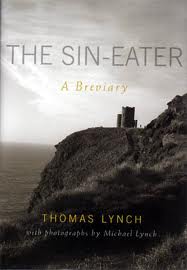Here are a couple more poetry books that I've been enjoying lately.
Jane Hirshfield's Come, Thief is an inviting and intriguing book by one of our best poets. Her poems are on the small side with lots of white space but they are packed with so much insight and punch, that they more than satisfy. To her poems Hirshfield brings an eye for nature, wisdom for relationships and a Zen philosophy. Here's the beginning of "Fourth World."
A friend dies.
A horse dies.
A man dies over and over again on the news.
Without them,
the fourth-world continues.
Waking fox-red on the flanks of the mountain....
She writes about the most ordinary things and makes them extraordinary. Look at these opening lines from "My Luck" about finding a penny: "My luck / lay in the road / copper side up / and copper side down / It shone / I passed it by / I turned around...."
If you want life-affirming poems that also delve deeply into the "flood topics" (as Emily Dickinson once called the important ones--life, love, birth, and mortality) try this collection or any of Hirshfield's work.
 Speaking of mortality, The Sin-Eater, Thomas Lynch's new collection focuses on the hero of an Irish myth, Argyle, a man who comes and dines by the newly dead. The widowed and the parents of dead children welcome him because they know that when they provide him with a nice repast, he will feast but also take away the sins of the dead with him.
Speaking of mortality, The Sin-Eater, Thomas Lynch's new collection focuses on the hero of an Irish myth, Argyle, a man who comes and dines by the newly dead. The widowed and the parents of dead children welcome him because they know that when they provide him with a nice repast, he will feast but also take away the sins of the dead with him.
These twenty-four poems have more of an old-fashioned feel than Hirshfield's--Lynch incorporates rhyme more, for example. The poems, almost all the same size, are also nicely illustrated with photographs of Irish scenes by Lynch's son, Michael. Here are the closing lines to "His Ambulations"
The memory of a woman's company
would bring his ambulations to a halt
to aim his gaping face due heavenward,
the dewy air her touch, her taste, sweet salt.
Lynch knows his subjects well: love, death, loss, and, in particular,grieving. For more than forty years, he's worked as a funeral director, one of the more unusual day jobs for a poet. The book also has a captivating introduction where Lynch speaks of his mother's wish for him to become a priest, his boyhood, his Catholicism, and his deep ties to Ireland. For those who like their poems to tell stories and give a real taste for a foreign land, try this collection by Lynch.
For a final taste of his work, here's the ending to "He Weeps among the Clare Antiquities": "Among old stones a calm came over him / as if the dead beneath them held their own / redemptions on their journeys heavenward, / like wild flowers gathered out of bones, / their sweet bouquets a comfort beyond words."
